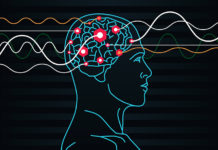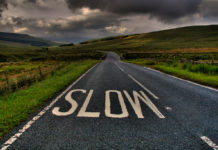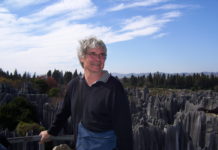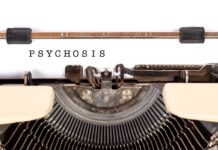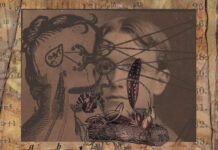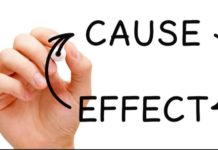Neurofeedback is Not For Everyone: The Dangers of Neurology
One thing I noticed, from the moment that I stepped out of my psychiatrist’s office, was how strangely blank and yet clear my mind was. I felt surprisingly calm and relaxed, and I decided to go back for another treatment the next week. What I couldn’t have known then was that after that next “treatment,” life would be completely destroyed for me.
New Data on the Adverse Effects of Meditation and Mindfulness
Study reports on the less-examined findings of difficult and painful meditation-related experiences.
Not So Rare But Rarely Diagnosed: From Demonic Possession to Anti-NMDA Receptor Encephalitis
Throughout the ages, convulsions, contortions of the body and face, including the tongue, super-human strength, catatonic periods, long periods of wakefulness or sleep, insensitivity to pain, speaking in tongues, and a predilection for self-injurious behaviours have all been offered as physical evidence of possession. The modern day interpretation, however, comes with a plot twist befitting a media spectacle. There is growing consensus in the medical community that many prior accounts of “demonic possession” may have represented original accounts of what is now broadly known as autoimmune encephalitis.
United Nations Report Calls for Revolution in Mental Health Care
In a new report, the United Nations Special Rapporteur on the right to health, Dr. Dainius Pūras, calls for a move away from the biomedical model and “excessive use of psychotropic medicines.”
Gradual Tapering is Most Successful for Withdrawal from Antipsychotics
Mixed-Methods study explores the experiences of antipsychotic discontinuation among service users.
Duty to Warn – 14 Lies That Our Psychiatry Professors in Medical School Taught...
Revealing the false information provided about psychiatry should cause any thinking person, patient, thought-leader or politician to wonder: “how many otherwise normal or potentially curable people over the last half century of psych drug propaganda have actually been mis-labeled as mentally ill (and then mis-treated) and sent down the convoluted path of therapeutic misadventures – heading toward oblivion?”
Fighting for the Meaning of Madness: An Interview with Dr. John Read
Akansha Vaswani interviews Dr. John Read about the influences on his work and his research on madness, psychosis, and the mental health industry.
‘Mad’ Psychologist Speaks Out
Yet again I find myself in the painful, ridiculous and uncomfortable position of having to try to do my best to repair the extensive damage which is being done to vulnerable survivors of child abuse by the system. Yet again I am powerless to do much about it.
Hallucinations Reported as Side Effect of ADHD Medication
Hallucinations and other psychotic symptoms have been reported after methylphenidate (Ritalin) treatment for ADHD.
Confronting the Addiction Voice on the Road to Recovery
Part 1 of this series examined how the disease model of addiction intersects with the genetically based “mental illness” theory and practice of Biological Psychiatry. Part 2 analyzed the serious limitations and sometimes harmful effects of the domination of addiction treatment by the Twelve Step (disease model), and how Biological Psychiatry has both seized upon and expanded the culture of addiction in this country. What follows will be a presentation of some alternative methods for overcoming addiction problems.
De-Othering “Schizophrenia” by Placing it in Socio-Historical Context
Understanding schizophrenia as a non-enigmatic, understandable human experience goes against a history of institutional “othering” that has sustained psychiatric legitimacy and further marginalized service-users.
Voices in our Heads: The Prefrontal Cortex as Parasite
As I considered the voice I heard talking to me in my own head, it occurred to me that what was happening was, more or less, a later development of the brain talking to a more basic and earlier level of consciousness, one which was not verbal itself and was, in fact, the actual seat and locus of my real awareness.
Safety Analysis Weighs Harms and Benefits of Antipsychotic Drugs
The researchers find that the drug effects for reducing psychosis are small and that treatment failure and severe side effects are common.
Learning to Speak Psychotic
One of the biggest barriers that people who are “psychotic” face is one of communication: other people often have trouble understanding what they’re talking about. The way they describe their experience and their ideas are simply foreign to most people. This lack of clear communication is what gets them labelled as “psychotic” in the first place, and thus it leads to a breakdown between the “psychotic” and the rest of society. This is a loss to both groups.
The Day I Became Schizophrenic
Schizophrenia, to me, is nothing more than a word. All it really means is that you experience psychosis on a regular enough basis that it’s a factor in your life. And that you actually do, as the word “schizophrenia” indicates, have a mind that you share with some sort of outside presence.
Epilepsy Drugs Can Induce Psychosis in Some Patients, Study Finds
In this month’s issue of the journal Brain a new study investigates whether the drugs prescribed to control seizures can increase the risk of...
Helping People to Constructively Engage with Voices
When voices are engaged with creativity and compassion, the result can be a positive change in the relationship with voices, leading to much greater peace of mind. But how can people learn how to facilitate this? A new video series by Charlie Heriot-Maitland, Rufus May and Elisabeth Svanholmer offers some practical ideas.
Study Suggests Long-Term Antipsychotic Use May Result in Poorer Cognitive Functioning
Association found between long-term antipsychotic use and poorer performance on cognitive tasks in adults diagnosed with ‘schizophrenia.’
The Genetics of Schizophrenia: A Left Brain Theory about a Right Brain Deficit in...
In recent months, two teams of researchers in the UK and the US published complementary findings about the epigenetic origins of schizophrenia that have scientific communities who indulge in ‘genetic conspiracy theories’ abuzz. While these results are intriguing, and no doubt involve pathbreaking research methodologies, this line of thought represents a decontextualized understanding both of the symptoms that are typically associated with schizophrenia, and their causes.
Distinguishing Dissociative Disorders from Psychotic Disorders: Compounding Alienation
If a person recognizes the “alien” parts of themselves as being parts of themselves, they are likely to be seen as having PTSD or a dissociative disorder. If they see the “alien” parts of themselves as being literally aliens, or demons, they will likely be diagnosed as psychotic. But these experiences are really on a spectrum.
Study Shows Clozapine Can Result in Serious Gastrointestinal Complications
A large observational study published in CNS Drugs sheds light on serious adverse effects of the ‘gold standard’ antipsychotic Clozapine.
Researchers Suggest Traumatic Experiences May Cause Psychotic Symptoms
A new study in JAMA Psychiatry investigates the relationship between trauma and psychotic experiences.
Better Outcomes Off Medication for Those Recovered from First-Episode Schizophrenia
A new study has found that of 10 people who were fully recovered from their first episode of schizophrenia (FES), those not taking antipsychotics did better in terms of cognitive, social, and role functioning—and reached full recovery more quickly.
Study Explores Māori Community’s Multifaceted Understanding of “Psychosis”
A new study explores how “psychosis” and “schizophrenia” are viewed within the Māori community in New Zealand.
Non-Pharmacological Interventions More Effective For Health in Schizophrenia
Review compares the effectiveness of pharmacological and non-pharmacological interventions for improving physical health outcomes in people diagnosed with schizophrenia.

